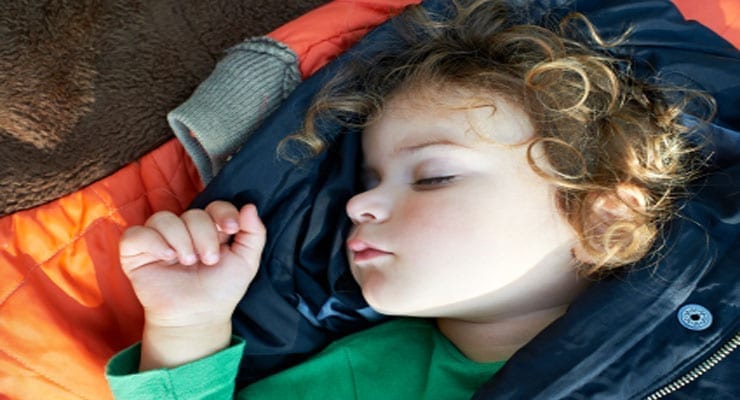Vacation. It’s a great time for families to experience new things and have fun adventures, but it can also wreak havoc on a child’s sleep routine. Sleeping in a new place is never easy and you can expect that there will be interruptions to the sleeping patterns that your children have become so accustomed to.
Knowing this going in – in addition to the tips below – will make for a smoother transition and a better vacation time for all!
1. You want the travel sleep environment to be as similar as possible to the child’s home sleep environment. Therefore, try to pack as many portable items as you can from the child’s home sleep environment. For example, if your child uses sleep aids such as a pacifier, lovey, or white noise machine at home, bring those with you when you travel.
2. If you do not co-sleep at home and you are staying at a hotel, request a crib in advance. Many hotels are limited in the number of cribs they have in stock, so you want to make sure one is reserved for your child in advance.
3. Although sleep routines and sleep environments may change while traveling, do your best to stick to your child’s sleep schedule. For example, put your child down for a nap as his/her regular time, but don’t worry if that nap is in a stroller or a car. If your child has an early bedtime at home, try to stick with a bedtime as close to that as possible when traveling. This may mean early nights for parents or hiring a babysitter, but it will prevent a very cranky and overtired child.
4. Do not begin to implement a sleep training program at home if you plan to travel within 2 weeks. You need at least 2 weeks of 100% consistency in a sleep training program and it is almost always impossible to be 100% consistent in regards to sleep when you are traveling.
5. If you are not staying in a private home during your travels, do whatever it takes to get your child back to sleep quietly and quickly at night they you are experiencing night wakings. It is not fair to your neighbors in the next room for you to allow any protest crying at night.
6. Do your best to stick to sleep schedules and routines, but do not worry if this is impossible. For sleep trained children, it only takes 1-2 nights of sleep re-training when you get home to get a child back to great sleep habits.
Happy Sleeping!





